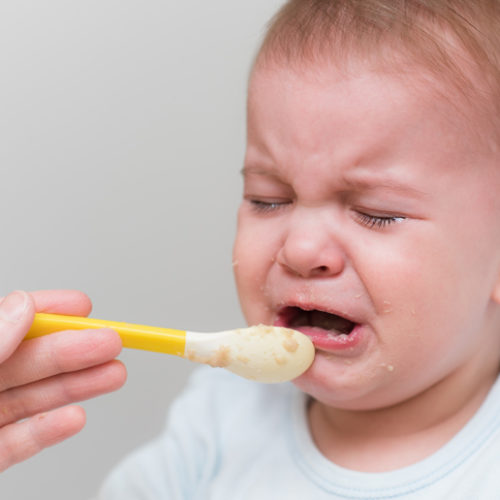Helping kids handle friendships and social conflicts

From playground squabbles to friendship fallouts, social struggles are part of growing up. How can you help your child learn to navigate them with confidence?
Friendships are a huge part of childhood. Whether it’s the classmate kids sit with every day, the neighbour they build dens with or the cousin they see on weekends, children are constantly learning how to connect, share, compromise and resolve disagreements.
However, friendship isn’t always straightforward. One week, your child’s best friend might be glued to their side, and the next, they’re declaring they’ll never speak to each other again. As parents, it can be hard to know when to step in and when to let kids figure it out – or how to give the right kind of guidance without overstepping.
The good news is, these ups and downs aren’t just normal – they’re actually important. Social conflicts offer children valuable opportunities to develop their emotional intelligence, build up resilience and practise their empathy. The key is in helping little ones feel supported, heard and equipped with tools to handle the bumps along the way.
Validate their feelings
Whether it’s a playground disagreement or being left out of a birthday party, your child’s social struggles are very real to them – even if they seem minor from an adult perspective. It’s best to resist the urge to brush it off. Instead, meet kids where they are and try to acknowledge what they’re feeling. Saying things like “That sounds really upsetting” or “I can see why you’d feel left out” are great for validating their emotions, showing your son or daughter that their experiences matter and that it’s safe to talk to you. That sense of safety is so important, especially as they grow older and the issues become more complex.
Don’t rush to fix it
As parents, our instinct is often to jump in and solve the problem. We want to call the other child’s mother, email the teacher or come up with a perfect script for our little one to follow next time it happens. However, part of growing up is learning how to navigate these tricky moments independently – with support, but not a rescue mission.
In place of offering solutions straight away, you might like to try asking open-ended questions to help your child reflect. Discussing if there’s something your child would like to say to their friend or if they can think of anything that would help next time are good starting points. These kinds of conversations gently guide kids towards problem-solving and self-awareness, rather than relying on adults to do it for them.
Name what’s going on
Sometimes kids know they feel bad, but they can’t quite put their finger on why. Helping them develop emotional vocabulary makes it easier for them to process their experiences and respond with clarity. You might say sentences like, “It sounds like you felt excluded” or “Maybe she was feeling jealous and that’s why she acted that way.”
Understanding how we feel and increasing our language around emotions are all key ingredients for strong, healthy friendships, now and in the future.
Normalise ups and downs
It’s helpful for children to understand that all relationships have highs and lows – and that it’s okay for friendships to change, grow or sometimes fade.
If your child is dealing with a friendship that’s shifting or ending, do your best to reassure them that it’s part of life and that it doesn’t mean anything is wrong with them. Encourage your child to think about what they need in a friend and how they can find new connections that make them feel good about themselves.
Set the right tone
Teaching kids how to express themselves clearly and kindly can make all the difference when it comes to resolving conflict. Children are like sponges and tend to copy what they hear, so aim to be intentional with your own language. Small tweaks, like swapping “You made me feel…” for “I felt hurt when…” or using phrases like “Can we find a way that works for both of us?” will set a brilliant example for them.
Look for patterns
While most social issues are part of the natural learning curve, it’s important to keep an eye out for patterns that suggest something more serious – like bullying, exclusion or toxic friendships.
If your son or daughter regularly feels anxious, withdrawn or upset after seeing certain friends, it might be time to dig a little deeper. If something doesn’t sit right, don’t be afraid to trust your instincts. Work with your child’s school if needed and let your little one know that they never have to stay in a friendship that makes them feel small, scared or unhappy.
Encourage a variety of friends
One way to reduce the impact of conflict with one particular friend is to help your child build a wider circle. Having different friends for different settings – school, sports clubs, neighbours or family – gives them more emotional security and lessens the pressure on one relationship.
You can support this by arranging playdates, encouraging group activities or simply talking about the different kinds of friendships people have. The more varied their social experiences, the more confident they’ll become in forming and maintaining relationships too.
Praise kindness and grace
When you see your child handling a social situation well, even in a small way, take the time to acknowledge it. Whether they apologised first, included someone new or tried to see things from another’s point of view, praise helps reinforce those skills. These moments build your little one’s self-esteem and show your child that their efforts to connect and be kind are valued and seen.
Know when to step in
While giving your child independence is important, there are moments where adult involvement is necessary. If the issue is ongoing, escalating or having a significant impact on your child’s wellbeing, it’s okay to step in.
This might look like speaking to the class teacher to get a clearer picture of what’s happening. arranging a conversation with the other child’s parent, if appropriate or setting boundaries around certain friendships or social settings. Just be sure to involve your child in the process, so they don’t feel undermined or blindsided.
Remind them they’re not alone
Friendship struggles can feel isolating – especially for older children and teens, who might believe everyone else has it all figured out. Remind your child that it’s okay to have tricky days and that everyone goes through ups and downs in their relationships.
Share your own stories, too. Whether it’s a childhood best friend you lost touch with or a time you had to apologise after a falling out, showing your own social journey reminds your son or daughter that no one’s perfect – and we’re all learning as we go.
Friendship is a skill
Friendship might seem like something that just happens but the truth is, it’s a skill – one that takes practice, patience and a whole lot of support. By guiding your child through the emotional twists and turns of friendship, you’re helping them become more compassionate, confident and socially capable.
So the next time your little one comes to you in tears over a playground fallout or your teen rolls their eyes and mutters about friend drama, take a moment to see it as a teaching opportunity. With your help, they’ll not only get through it – they’ll grow from it.
Image Credit: ShutterStock











Comments